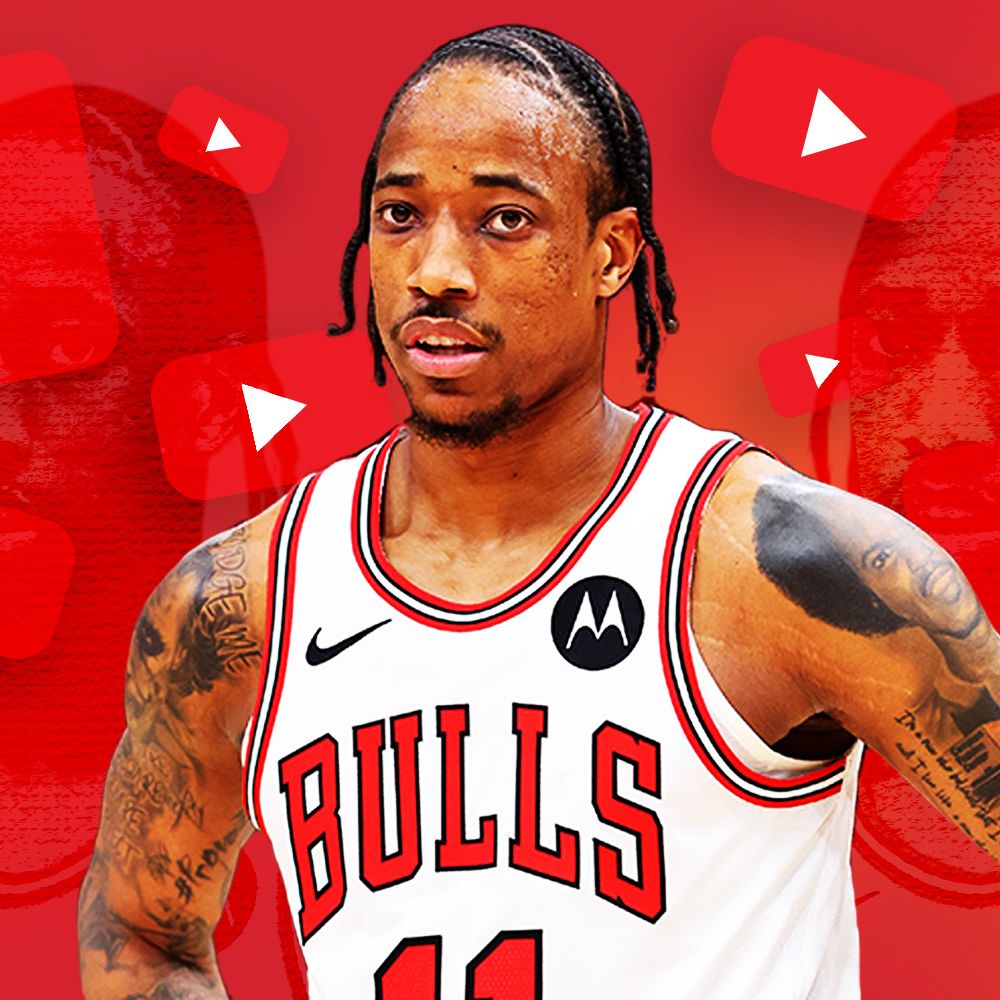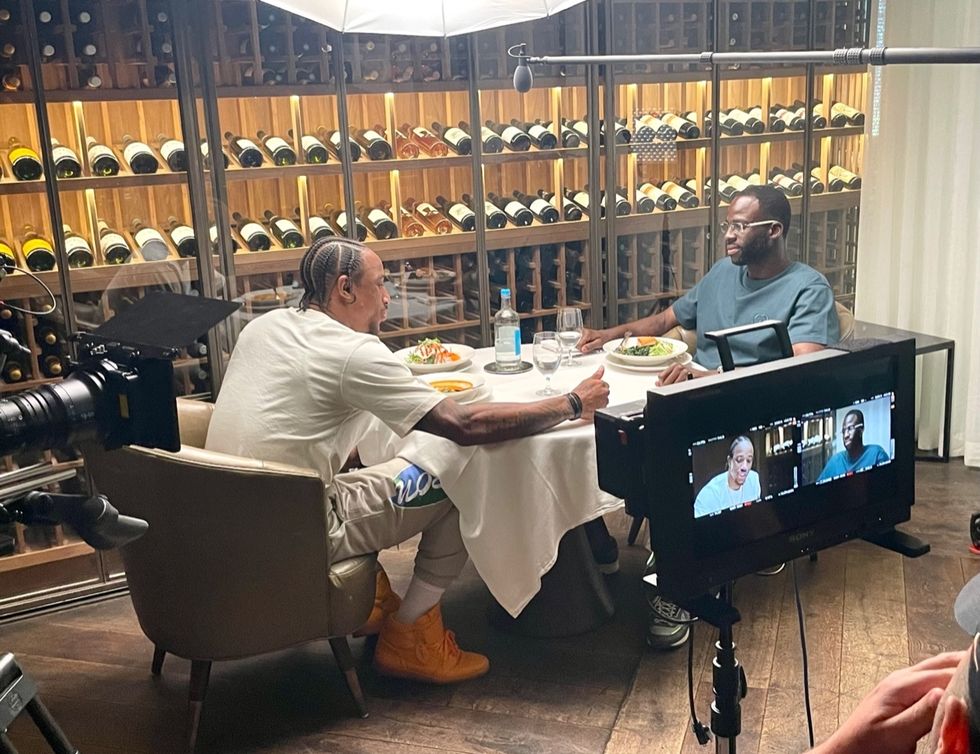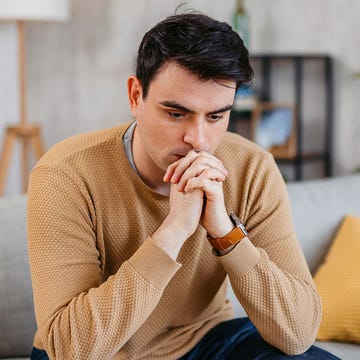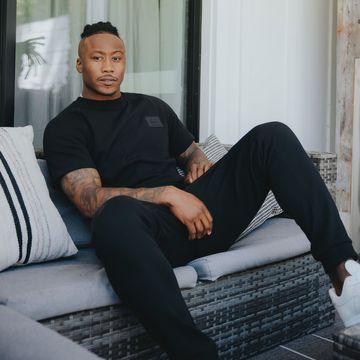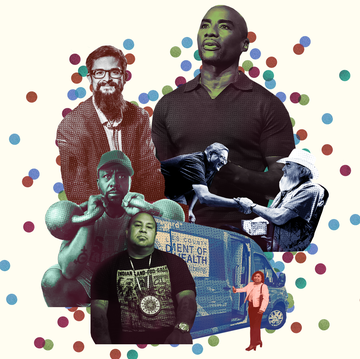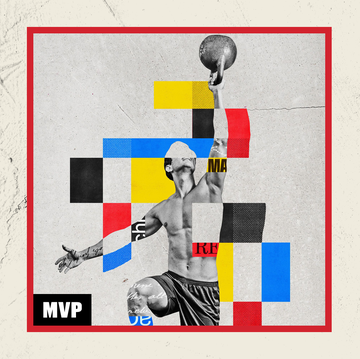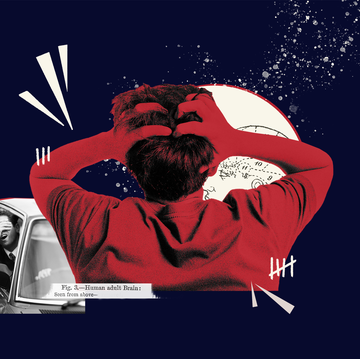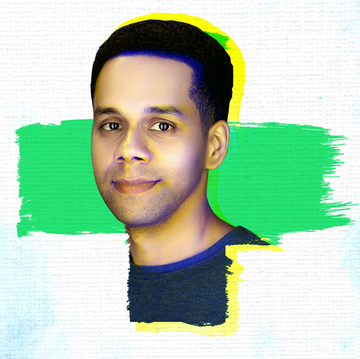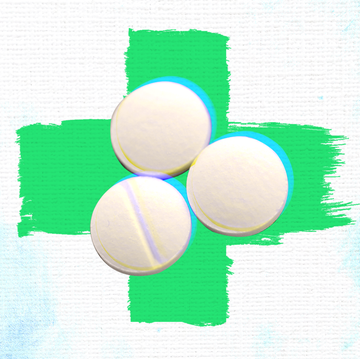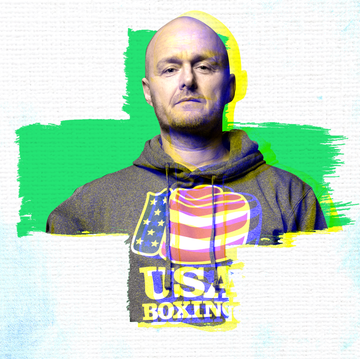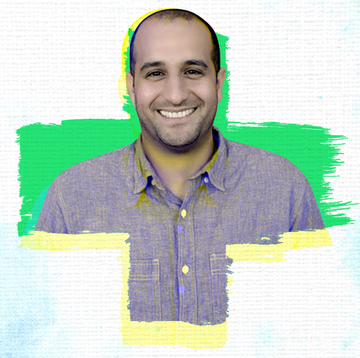THIS DEPRESSION GET the best of me..." he tweeted from his hotel room in Los Angeles. It was All-Star Weekend 2018—a time when NBA players typically take advantage of the competition and camaraderie amongst their colleagues who are the best in the game. Instead of hanging out with friends and relishing in the weekend, though, DeMar DeRozan decided to stay in his hotel room. Mentally and emotionally drained, he locked the door and didn't tell anyone where he was. Laying in bed alone, he felt lost. Overwhelmed. Ready to go home and see his daughters. After he sent the tweet in the middle of the night, desperate to get his feelings off his chest, he put his phone down and went to sleep.
The next morning, DeRozan woke up to his phone blown up with messages from concerned friends, family, teammates, and fans. Before he pressed send, the then-Toronto Raptor didn't think twice about what that tweet would mean to the world (it was more of a "fuck it and press send" moment). But to the world, DeRozan instantly set a precedent and became the face of mental health advocacy for the NBA. That tweet represented a vulnerability the league had never seen one of its players display publicly before. And it mattered.
Six years later, when DeRozan posted a screenshot of that very same tweet on his Instagram to announce what would later be known as his new mental health series, Dinners With Demar, that flood of messages—and feeling of overwhelmingness—returned. "It took me back to that exact moment, and it just shows you that the work is never done," DeRozan tells Men's Health. "It's something that's continuously going to be there. It's just how you work through it and address these feelings because a lot of things will never go away."
In Dinners With Demar, DeRozan sits down with athletes, celebrities, and entertainers over a meal to have unfiltered conversations about mental health, fatherhood, and success. The first season, available on DeRozan's YouTube channel, consists of three episodes with guests Draymond Green (out February 20), Dwyane Wade (out March 5), and Damian Lillard (out March 19). Each episode offers a close-up look not only of his relationships with these guys (DeRozan wanted to specifically launch the series with people he's close to, and will eventually chat with people he doesn't have a personal relationship with), but how each of them uniquely handles the mental health challenges that come their way.
Upon the series' release, MH chatted with DeRozan about how he manages his mental health, his thoughts on the NBA's mental health program, and the legacy he hopes to leave off the court.
Men's Health: As you alluded, depression comes in waves and never really goes away. What do you do when find yourself in a really dark place and it’s all-consuming? How do you get yourself out of it?
DEMAR DEROZAN: For me, being an athlete, I combat those feelings with physical fitness; locking into my occupation. I have a routine. If I'm not playing at night, I go back to the arena at night. Sometimes I get in an ice tub and take my mind away from everything that's going on and recalibrate my emotions and take a second to myself. Because sometimes being around so many people, being overly-stimulated with social media or the TV being on, you just need to take a second to yourself. A lot of times at the games we fly in from the city, we land at about 12, 1 o'clock in the morning. I'll go back to the gym and do this routine and I might sit there until 3:30 in the morning, go home and get in bed, rest up, and get ready for the next day.
Is there anybody in the league specifically that you call upon when you’re feeling low and need someone to talk to?
A good friend of mine is [Utah Jazz forward] Rudy Gay. I always call him, sometimes even if it's about nothing specific—it's more so just to talk, laugh, escape, and get lost in a conversation with him. He's definitely one of my close friends.
What do you do on a daily basis to manage your mental health? Are there any specific coping mechanisms you’ve learned from therapy?
For me, whenever I'm with my kids, that's always a beneficial way to handle it. Just getting lost in pure peacefulness when you're around kids. Kids don't care about nothing else. But if I ain't with my kids, a lot of times I just rest. I try to find ways to rest my body, my mind. For me, it's always taking a second to yourself because being an athlete, you're so engulfed in the rollercoaster ride that a season has to offer, and sometimes you don't get time to yourself like that. So sometimes I may just escape, take a second to myself, put the phone down, turn the TV off, and really just relax. From therapy you learn how to address whatever it is you're going through and zone out, be one with it, and figure out ways through it. Not around it.
It always feels good when you do something for yourself. It could be something as small as taking a shower. Just getting home from work and taking a shower, relaxing, getting something to eat that you've been wanting all week. I know for me, sometimes I go outside and just sit and listen to the wind blowing. Maybe a car ride. Sometimes I just get in the car and just drive, listen to music. I'm definitely big on the self-care, whatever that looks like for you.
When’s the first time you realized you might be depressed? Is there a specific moment or experience you can recall?
The feeling from even me writing that tweet...I've had that feeling countless times before, but I never associated it with the word "depression." It was always feelings that I had going back to when I was young—just having this internal aggression, this internal frustration. Let down, doubt, hatred, whatever...all these feelings that I never could identify with directly. So it's hard to say when I knew exactly when, because I always dealt with so many emotions at a young age because of the amount of stuff I went through personally.
Was there ever a moment during your younger years, before the NBA, when you noticed you were potentially sacrificing your mental health to achieve your dream?
For me it came so much later because no matter what it was like, by any means, I had to make it out of the environment I was in. So working my butt off every single day, even making it into the league, it's kind of like a restart because it's like now you got to figure this whole "being a professional" thing out. Now you got to put in the work to compete versus grown men. If you really want to be something good in this, you have to put the time and effort into it.
You don't think of anything other than getting to that goal of wanting to be good, wanting to be special in the NBA. And you overlook everything else you may be going through. We all do it because when you need to pay the bills or you need to make sure there's food on the table, you're willing to sacrifice whatever you need to sacrifice. And sometimes you don't realize until later how much you sacrifice with that, and it takes its toll. Nothing was more important than me making it out and try to have a better life for myself and my family.
What are your thoughts on the NBA’s mental health program, which you helped champion? Are there ways you think it can improve?
Guys getting more involved, talking about it, making it a norm. Just like if it's eating healthy, working out the right way...taking care of your mind is just as important. The more guys who get involved—the more people who show vulnerability and even the young guys taking that approach of addressing whatever it is they may be going through to seek help—the better it'll be for us all. It's a process, and I think the more we normalize all the stuff that we are going through, the better it'll be for the next generation coming up.
We're starting from a good point of view. As long as we continue to build on it, we look up three, five years from now, it could be something even more than we imagined it would be. The more guys in our position who show vulnerability, the better it will be. Not even just for our league, but for society in general.
You and Draymond had a very real conversation about therapy and talking yourself out of going before committing. What advice do you have for people who may be averse to therapy?
It took me plenty of times just to force myself into doing it. Sometimes it may take three, four, five chances, but as long as you stick with it, you're going to take something from it that you feel would be beneficial. Just don't give up on it because something going's to click for you to understand what you need and how much you need it.
What about the people who may not have access to mental health resources like therapy? How do they keep going?
There's always a way, even if it's to the point of you just understanding that if you have someone close to you, it doesn't necessarily mean you got to go to a therapist. Just opening up with someone you care for could be a therapeutic way to get whatever weight's on your shoulder. For me, I always used to watch a lot of people I look up to that I didn't even know; stories of how they made it. I remember I watched a YouTube of Denzel [Washington] talking about everything he had to go through and overcome, and you find inspiration in that to just keep going and keep pushing.
There are so many ways in today's climate for you to find and get any type of help that you may need if you feel like you don't have the resources to see a therapist. There are so many speeches and lectures you could sit and listen to and find insight of understanding what it is you could do to better yourself.
You kinda fell into this whole mental health advocacy. When you eventually retire from basketball and look back on your life, what do you want people to remember about you?
That I have changed the shape of the stigma of mental health. That we all can be better people, and it's okay to go through whatever it is you're going through. Find a way to be an inspiration for yourself and for others because life is going to test you, and how you get through that test shows the type of person you are, and how resilient you are. That's one thing I want to be remembered as.
Dinners With Demar is available to watch here.
